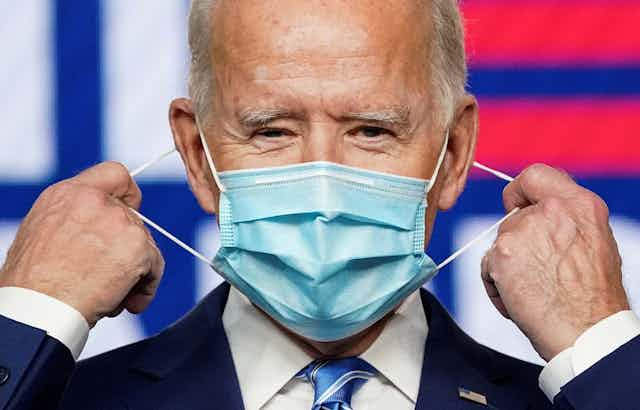After a week of intense vote tallying, former vice president Joe Biden was declared the new president of the United States, defeating incumbent conservative populist leader Donald Trump.
Biden’s victory is expected to bring many changes in US domestic and foreign policies, including the country’s policies towards its nemesis, China. Biden is likely to introduce a softer approach to China than Trump.
Under Trump, relations between the United States and China have been heating up. He has tried to isolate China from the global order, both economically and politically, as he sees China is challenging US hegemony on the global stage.
This tension has impacted partners of the US and China, including Southeast Asia, where both countries are competing for influence and power.
Biden’s gentler approach to China is expected to accommodate Southeast Asia countries that wish to have both the US and China as allies.
Biden and China
Washington’s policy toward China would undergo a large shift under Biden.
Biden has said he will focus more on diplomacy and co-operation in areas of mutual interest.
In May 2019, Biden said China was “not competition for us”, since it had domestic problems to deal with.
He even proposed that the most effective way to challenge China is to “build a united front of US allies and partners to confront China’s abusive behaviours and human rights violations”.
At the same time, he plans to co-operate with Beijing on issues such as climate change, nuclear proliferation and the pandemic response.
Biden has also slammed Trump’s trade war with China — saying that tariff wars have hurt American businesses and consumers.
With a foreign policy team largely recruited from the previous Obama administration, Biden would likely reverse Trump’s hawkish measures towards China.
Under Obama, the US generally welcomed China’s economic and military rise and its growing roles in international institutions. Biden is likely to follow Obama’s approach towards China given their shared ideological base in the Democratic Party.
The impacts of US policy shift in Southeast Asia
During Trump’s term of office, some countries in Southeast Asia considered the US attitude in the international world was not very favourable.
They saw Trump’s approaches and policies as too “harsh” and unilateral. For example, while countries in Southeast Asia are struggling to fight COVID-19 and see China as a solution with its vaccine development, Trump has instead voiced an anti-China policy campaign.
At the same time, during his time in office, Trump has seemed ignorant about Southeast Asia and was absent from most major ASEAN summits and meetings. This made Southeast Asia countries less likely to see the United States as a partner and more dependent on China.
The conflict between the two countries also forced Southeast Asian nations to choose between the two.
However, things may soon change with Biden’s victory.
A softer approach from the US might prompt China to be less aggressive and be increasingly careful in making policies.
We might see a softening from China on its policies on the South China Sea, territory that is disputed between China and its Southeast Asian neighbours – Vietnam, the Philippines, Brunei Darussalam, Malaysia and Indonesia.
China has been very aggressive when it comes to the South China Sea. It has created artificial islands for military purposes in the disputed territory. The area reportedly holds 7.7 million barrels of oil and 900 trillion cubic feet of gas reserves, which are almost equivalent to the oil reserves in Saudi Arabia.
Under Biden, who has pledged to work on more engagement not only with China but also the other parties to the dispute, China’s aggressiveness in the South China Sea could subside.
When the ties between China and the US improve, China is likely to avoid pursuing policies that may endanger its relations with the White House.
Not only that, the potential ending of the US-China trade war by Biden, although it may take some time to materialise, will also improve the region’s export and import figures due to the improved prospects of Southeast Asian countries trading with the two world’s largest economies.
The trade war has caused exports of Southeast Asian countries to decrease due to the low demand for raw materials to China and direct exports to the US. Indonesia’s exports, for example, only reached US$167.53 billion in 2019, dropping by 6.94% compared to the previous year’s achievement of US$180.01 billion. The conditions remained the same until this year. The same trend also occurred in other countries.
The focus on international co-operation and the possible end of the trade war thus open the possibility for Southeast Asian nations to not only restore their economies but also to lessen their dependence on either China or the US.
Habib Pashya, a Universitas Islam Indonesia student, contributed to this article.

